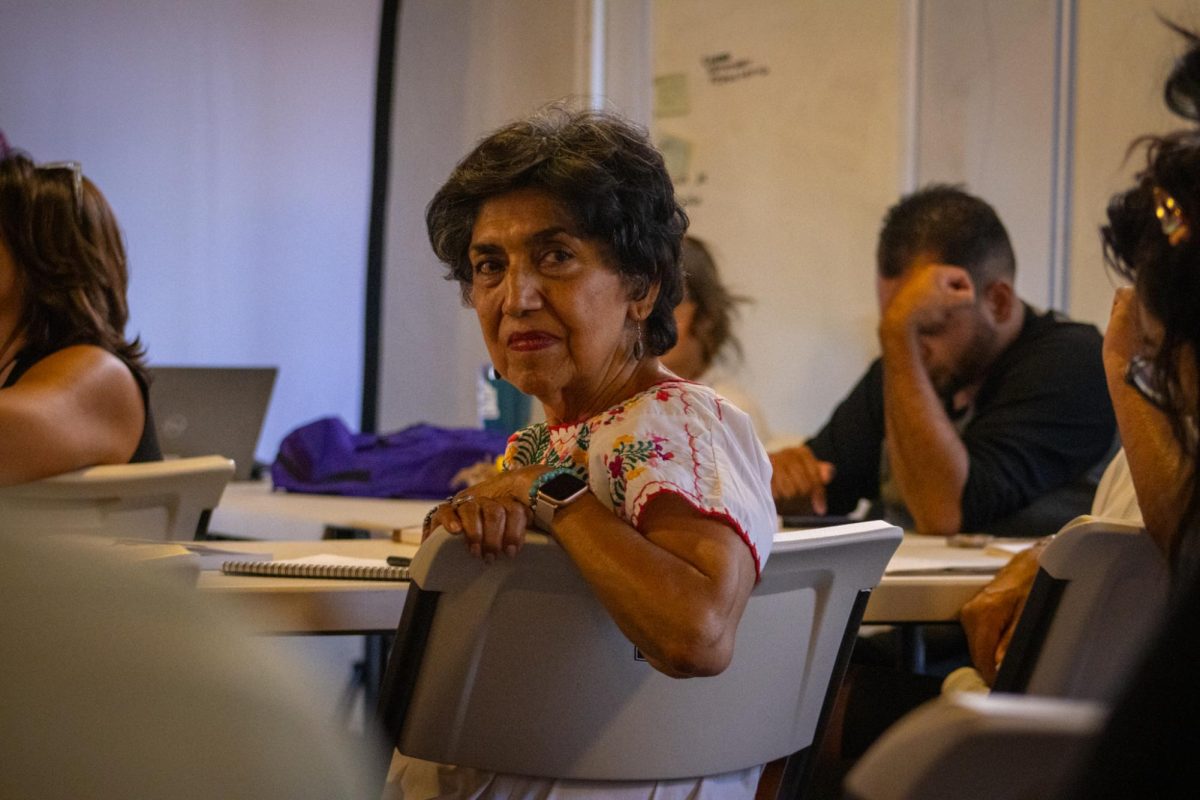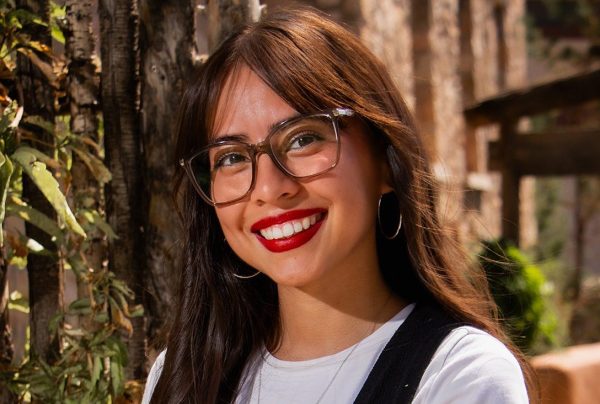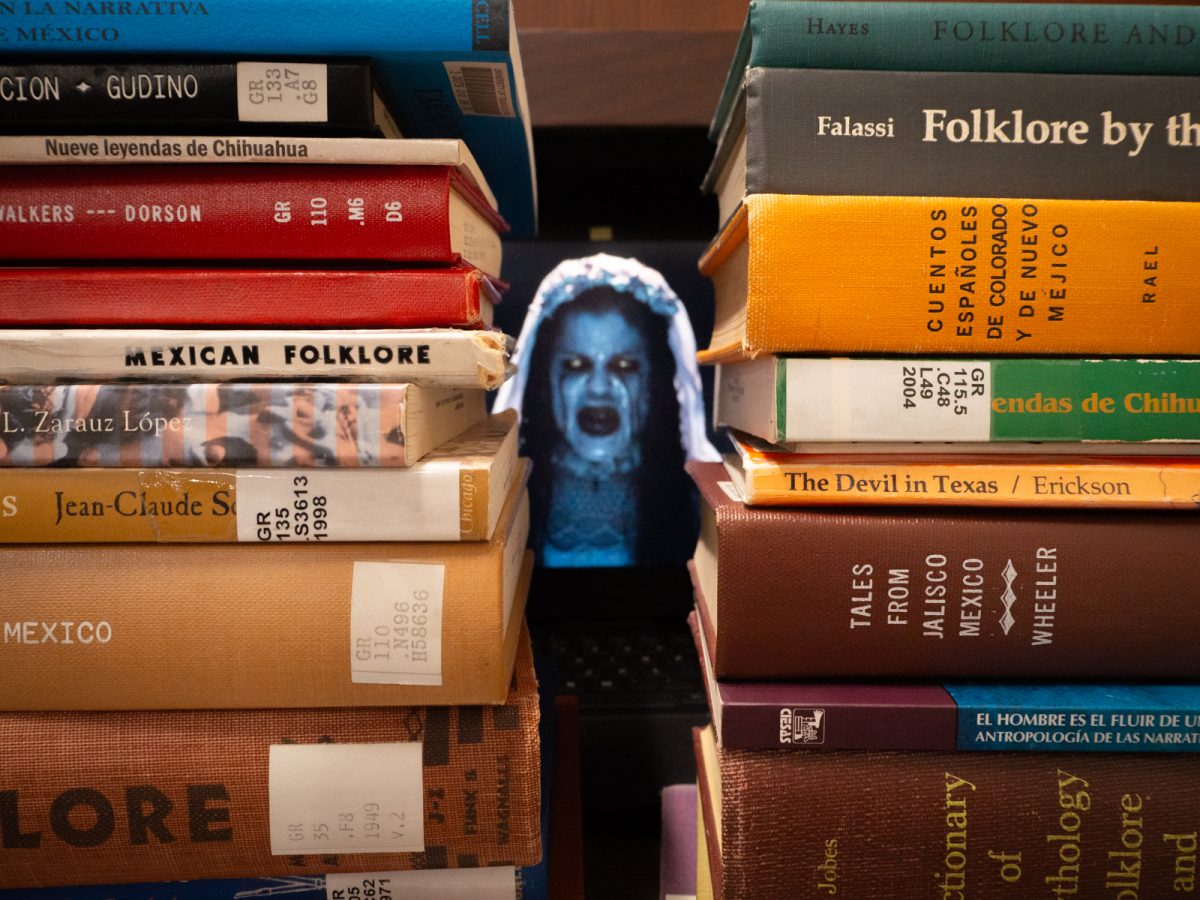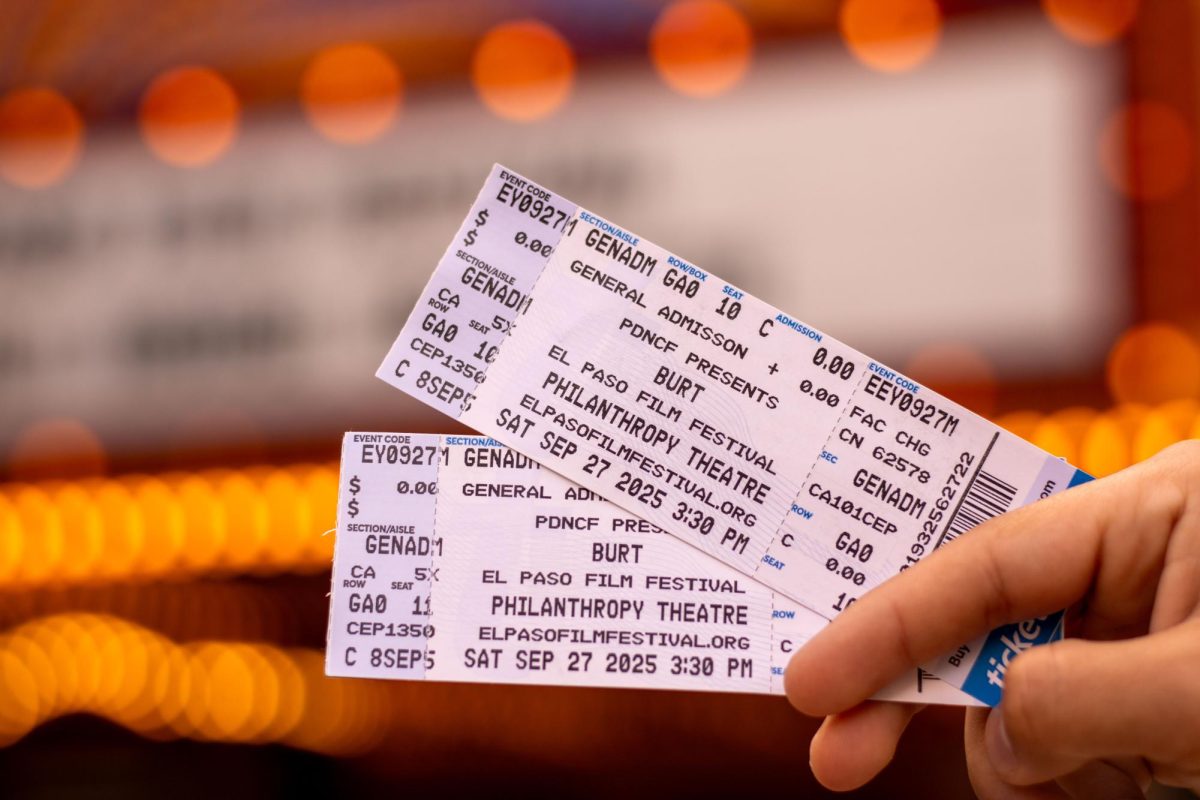At the Alamito Cultural Center in El Paso’s Segundo Barrio, a diverse group of people, ranging from a fifth graders, college graduates and retired educators, gather with a single commonality: to learn the Mexica language of Nahuatl.
The class, taught entirely out of the will of author, historian, musician and cultural activist, David Romo, Ph.D. It takes place every Tuesday with the mission to create a supportive community where culture, language and ancestral knowledge can be celebrated.
“I think right now is a time where a lot of people are in need of emotional support – spiritual support. There are a lot of people that want to reconnect to their indigenous ancestral knowledge as Mexican Americans,” Romo said.
The class began with every student declaring “Notōcā …” (Nahuatl for “my name is…”) and sharing why they decided to attend. Common themes rang true such as finding a place for emotional healing, reclaiming the indigeneity that has been denied to them, and a desire to create community.
“We’re just here creating communities, supporting each other and reconnecting to our spirituality,” Romo said.
Following introductions was a prayer led by Abuela Bea, a respected elder, whose gentle authority moved the class from instruction into ceremony, reconnecting them with the North, East, South and West directions of the land each representing something different.
Nahuatl is the language of the Mexica who have been misnamed as the “Aztecs” and has existed for over 6,000 years, Romo explained.
“It’s a part of our ancestral language and a lot of us feel that we should know about it because it has a different worldview when you enter the worldview of indigenous people,” Romo said.
The class on July 15 was accompanied by guest speaker Yolanda Leyva, Ph.D., a Chicana/fronteriza historian, writer and associate professor of history at The University of Texas at El Paso. Leyva emphasized throughout her portion of the lecture that what you get from surrounding yourself with community you can’t get from books alone.
This sentiment resonated with Jazmine Cuevas, an Afro-Chicana and El Paso native home for the summer from studying at Cornell University. After hearing about the classes during the spring semester, she was finally able to attend her first session.
“I wasn’t expecting a lecture like this, but it was a beautiful lecture. Knowing the conceptual of Mexicas is important,” Cuevas said.
Cuevas, who also traces her roots to the West African Yoruba people, appreciates the cultural teachings she can find in her hometown.
“To live in a place that’s very alone and isolating and doesn’t have access to this kind of knowledge. I heard about it [the classes] during the spring semester and was super sad I couldn’t make it,” Cuevas said.
Romo began hosting the classes at the Film Café in Downtown El Paso, assuming only ten people would show up. Instead, nearly 40 attended. Five months later, he continues to be pleasantly surprised with the growing turnout of new and dedicated students who come with a purpose.
“You could see that it is heartfelt. It means something for people to reconnect to their indignity, to their ancestral knowledge,” Romo said. “This government is trying to erase brown people and it (learning Nahuatl) is a way to decolonize ourselves and not forget our ancestral roots. Relearning our languages is a way to open a door to the people that were already here and reconnect ourselves to those ancestral groups.”
After the lecture, attendees gathered to share some food from a potluck-style table and shared stories with one another. Shakers and drums were then passed around as the drum circle was preparing to commence.
Songs such as “Venadito Azul” and “Huey Tonantzin” filled the room, with the rhythms of drums and rattles echoing loudly as the students raised their voices together to sing in Nahuatl with the new words they learned in that night’s lecture.
The Nahuatl classes are structured in two sections; the first at 6 p.m. being for an intermediate group that focuses on grammar and different parts of the language followed by a larger group at 6:30 p.m. who gather to learn history, for support, and to participate in the drumming.
Classes are held every Tuesday at the Alamito Cultural Center on 508 S. Vieginia St, El Paso Texas 77901. Visit @david.d.romo on Instagram for more details.
Evelyn Palma is the editor-in-chief of The Prospector and may be reached at [email protected] and on Instagram @evelynp.media.








